News
12 steps to being an eco diver
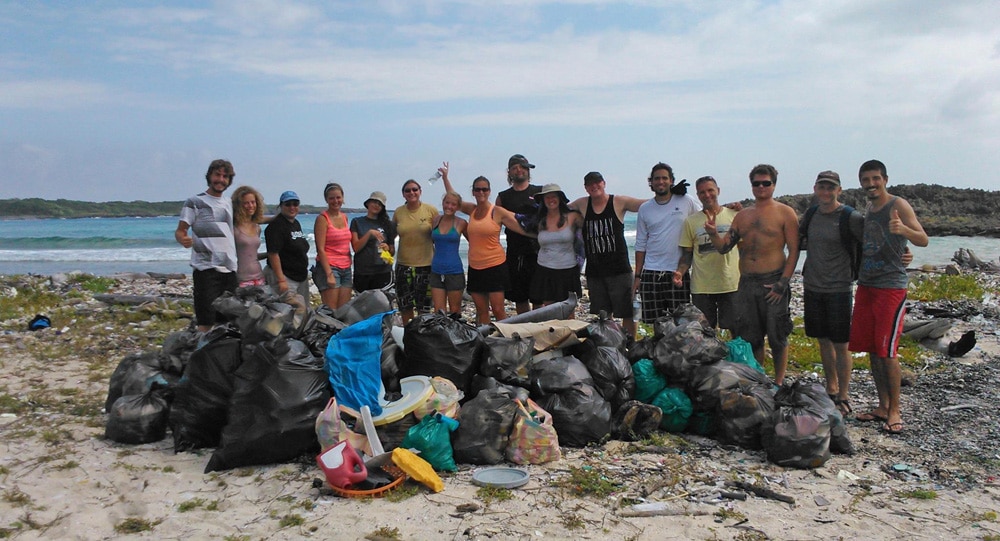
For most divers, I think we feel pretty privileged to get to see and enjoy the amazing underwater world. As the plight of our oceans and coral reefs becomes more prominent in the news and on social media, often divers find ourselves probably a bit more aware of the value of the life beneath the waves and the issues affecting it. Therefore, it can be quite distressing when we learn that not all of the negative impacts on coral reefs are from large scale human impacts like climate change and overfishing, but that in some areas, lots of damage comes directly from divers and diving tourism, particularly in those areas that experience a high density of divers year round.
So, how do we divers, who love our sport and the underwater world, overcome the negative impacts and turn our actions into positives?
Here’s a list of 12 easy things we can do to minimise our impact:
1. Be choosy about your dive centre
There are lots of dive centres out there going above and beyond to be green, teaching and supporting good dive practices and minimise their environmental impact. A little research before hand and you can find centres that give marine biology talks, do beach cleans and work on an environmentally-friendly basis. Generally I find I have a better time and get more from holidays like this. The Green Fins website is pretty helpful.
2. Buoyancy
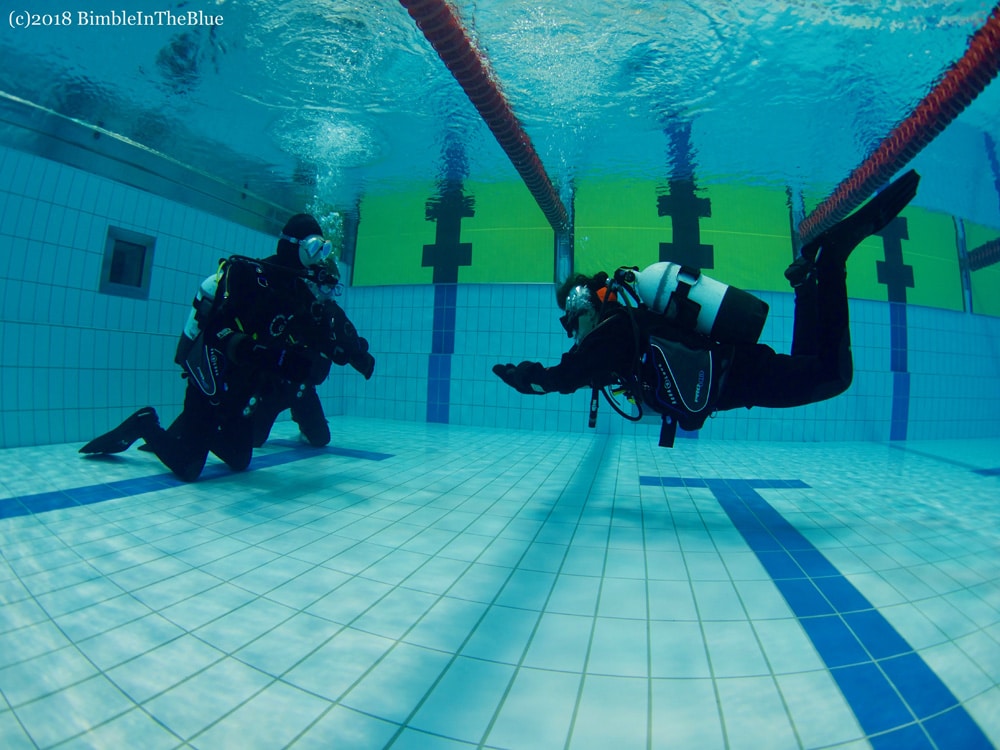
Buoyancy is massively important for both enjoying the dive, improving air consumption and also not trashing the environment you are diving in. Practice makes perfect, so you are never too good to try and improve; skills get rusty after a break even for experienced divers. There are lots of places offering courses specifically designed to improve buoyancy, so it’s a great excuse for more diving!
3. Do not touch anything
There may be an odd occasion you need to hold onto a rock if you’ve just run into a strong current or use a finger to stabilise yourself for a moment in an emergency. If you can pick a bit of rock without growth or a bit of dead coral to hold onto, this is best.
However if you are regularly holding onto stuff or bouncing off the bottom, then it’s time to go back to basics and get your buoyancy under control. If not for the sake of the environment, but yourself, particularly when you realise you just grabbed hold of a stonefish…
4. Reef safe sun screen
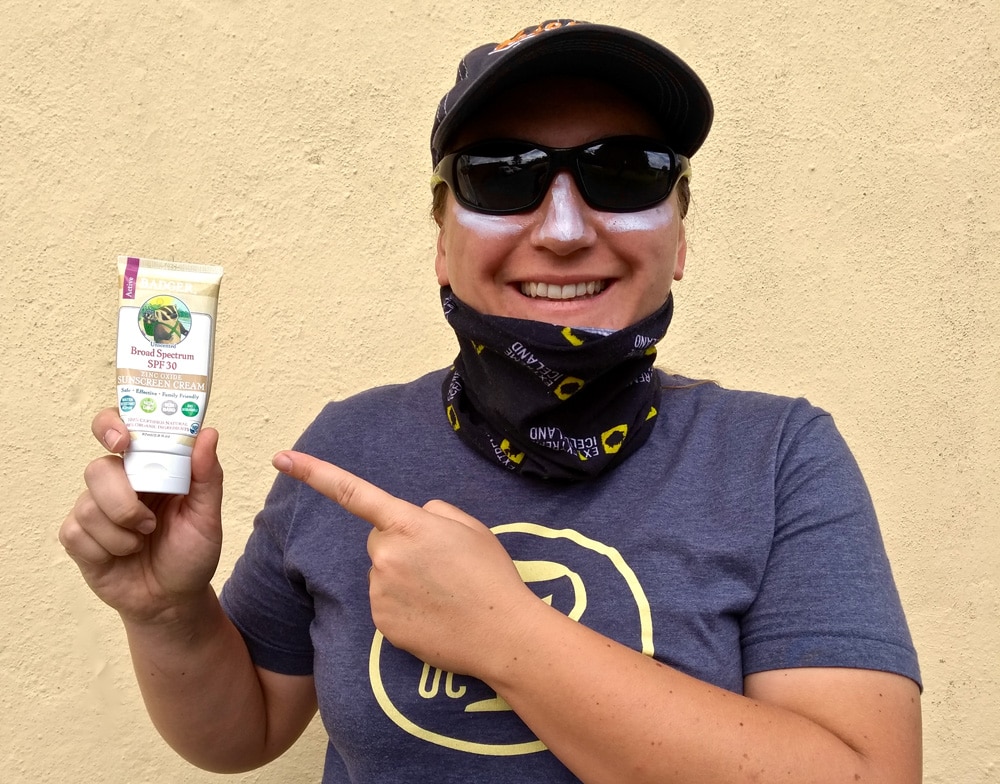
On a tropical dive holiday, chances are you will be using sunscreen to avoid sunburn and the associated health risks and pain that come with it. Many sunscreens contain oxybenzone, which is very bad news for reefs, as it kills coral. Since we know we will be in the water and some of the sunscreen will be washed off, by using a reef safe sunscreen, we ensure our diving activity doesn’t pollute the water for the corals we are there to see! For a list of Reef Safe Sunscreens click here! You could even forego the sunscreen entirely and wear a sun hat and UV-protective clothing instead.
5. Reusable water bottle
Keeping hydrated is a must in diving as hydrated divers are less likely to get the bends or suffer heat related issues in hot climates. By using a reusable water bottle, you can reduce the amount of single-use plastic entering the environment. Having your dive centre refill your own bottle it also often works our cheaper than buying bottled water from the shops.
6. Do not tip bad guiding
If your dive guide moved that frogfish/seahorse for you to get a photo, ask them not to touch or move anything. A photo is never worth killing something by stressing it out. If they guided you deeper than the original dive plan to show you something, or deeper than you are qualified/ comfortable going, ask to stick to the dive plan next time. Plan the dive, dive the plan. Ultimately you are responsible for your dive and your safety. Guides do what they think will make customers happy because happy divers tip. If your guide is acting like a cowboy, it’s probably because previous divers have rewarded this behaviour.
7. If you are a photographer, remember your surroundings
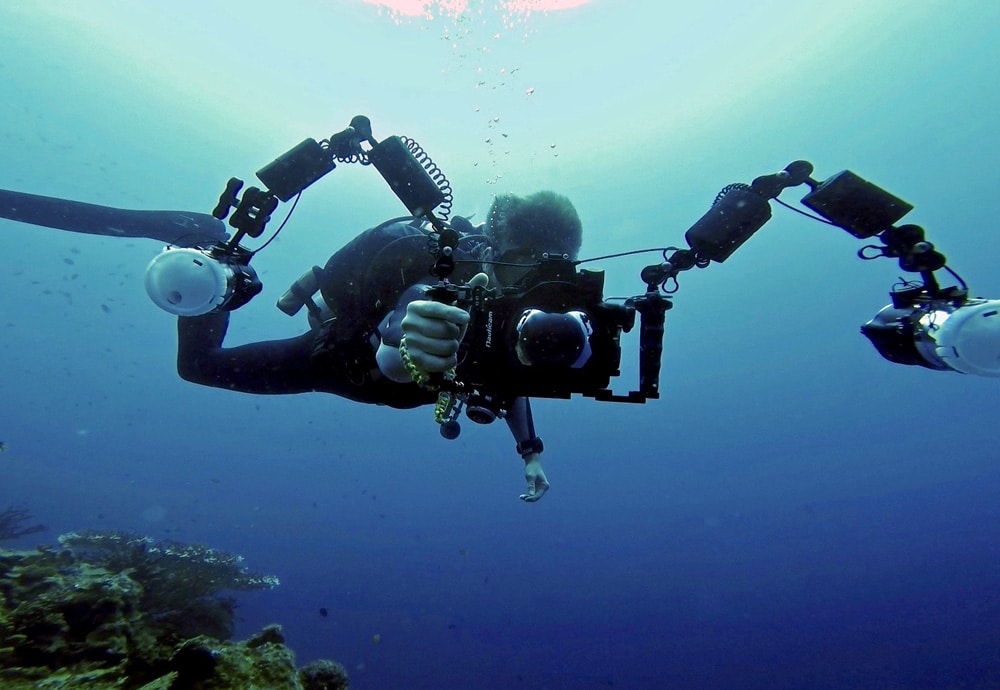
Never move anything, try not to touch coral or lie on the bottom. If you need to hold onto something to get your photo, then it’s back to work on your buoyancy before going in the water with a camera! Often taking a few well planned shots is best. Many creatures, such as seahorses are sensitive to light, so taking a few good photos and moving on ensures they are not permanently blinded by multiple strobe flashes. Also spare a thought for others in the dive group, by sharing the view of a nice critter, it reduces the likelihood of lots of divers crowding one spot and inevitably someone kicking something, causing damage and kicking up sand and silt.
8. Use spit, rather than washing up liquid or shampoo
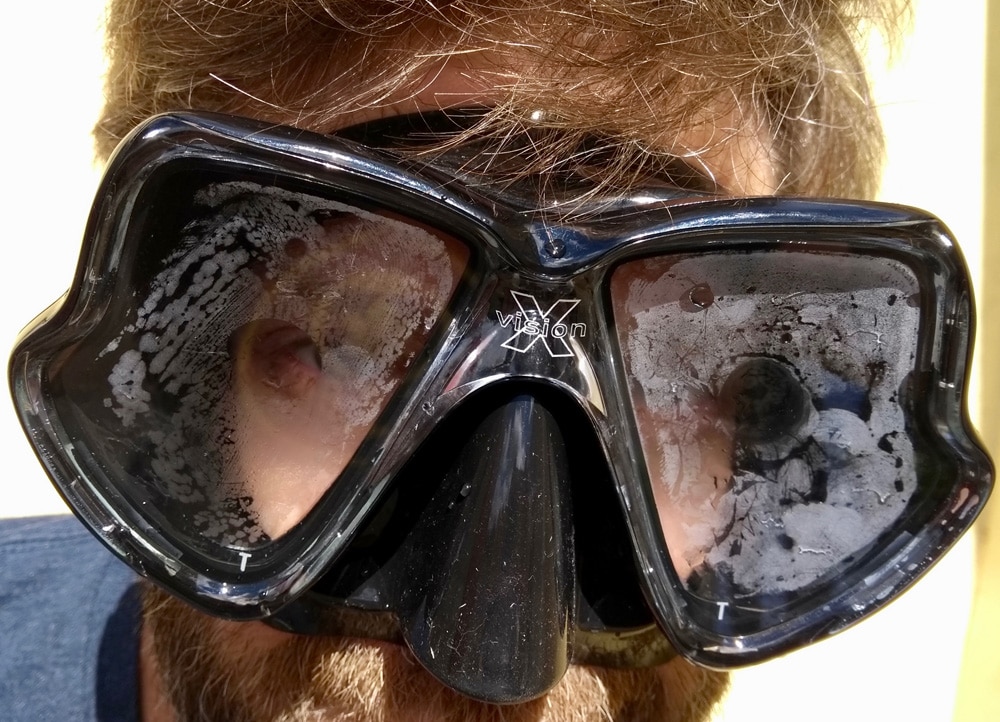
There are a few biodegradable defog options out there for anyone who’s spit is not very effective at keeping their mask fog free, but for the majority of people spit works really well! It’s free, it doesn’t need time to break down to do no harm to the environment and you always have it with you!
9. Get involved in reef surveys or clean-ups
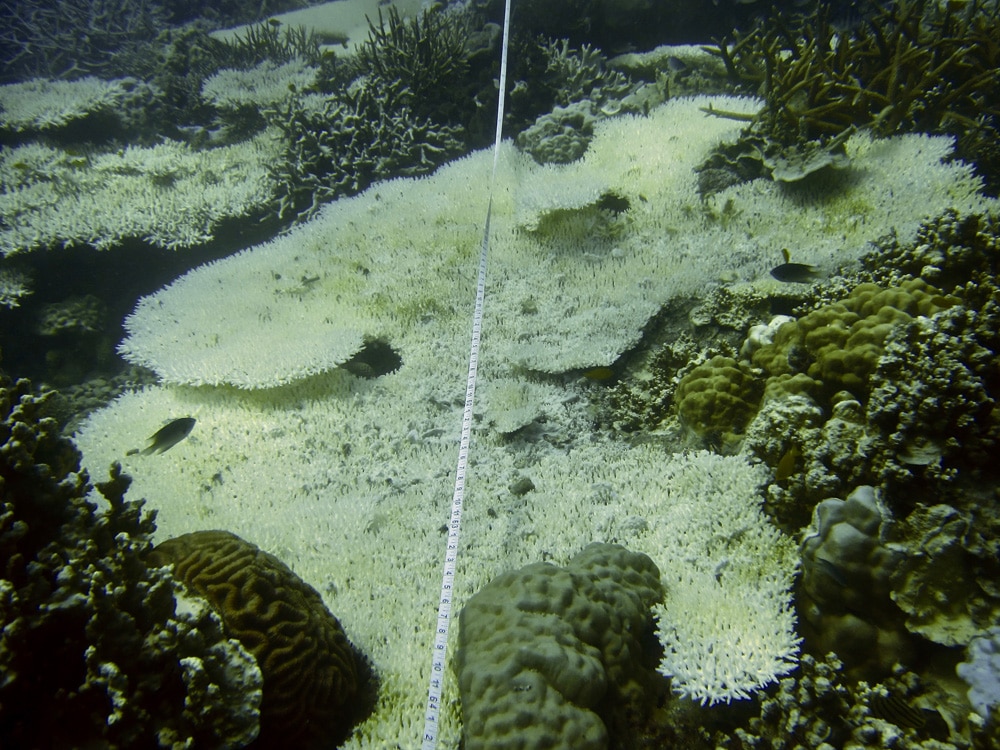
One of the absolute best ways to be sure you are having a positive impact is to give up some of your time to help clean up an area. Many dive centres and organisations will very gladly accept your help on a local beach clean or dive clean up. If you know your fish and coral you can also help by taking part in reef surveys, such as Seasearch, REEF, Reef Check or Coral Watch. Many eco dive centres teach these courses if you would like to hone your underwater ID skills and help gather data for science and conservation.
10. Think about your impact on land
Even though many of us wish we could live underwater sometimes, we do spend the majority of time on land and here we can make a huge difference that will help all environments and our oceans. We can reduce our dependence on single – use plastics that may end up in the ocean, by using reusable water bottles, coffee cups, straws and bags made from recyclable plastics or even better, alternatives like bamboo. Also, have a think about where you stay when on dive holidays, does the hotel try to avoid single use plastics? Do they recycle? What happens to the waste water? Again, with a little research good, affordable eco options can be found for accommodation. It’s always good to know you won’t be diving in water that your waste is going into!
11. Support initiatives to clean up the oceans
There are many great organisations out there attempting to make a difference. We can join charities like Marine Conservation Society, or buy products from clean up programmes. Fourth Element have a new swimwear range made from ghost netting and there are some very good looking flip flops made from recycled ocean plastics. New things are coming on the market all the time, they look good and are a great example of reusing and recycling. Have a search for what is going on near you and how you can support the movement.
12. Try not to eat the seafood you have just been diving with! (The invasive Caribbean lionfish aside).
If you were wondering why there weren’t as many fish as the last time you dived here, and you then go and order a reef fish for lunch at the hotel…you may have found your answer! For a guide on what is sustainable on most menu’s and what to avoid click here. For recipes for cooking the delicious and invasive Caribbean Lionfish, click here!
Marine Life & Conservation
Steve Backshall to headline Shark Trust’s flagship event: For the Love of Sharks

Join a host of amazing, shark loving, speakers including Steve Backshall and the Shark Trust team for an evening celebrating shark conservation at the Royal Geographical Society in London this November.
Date: 29th November 2024
Time: 6-10pm
Location: Royal Geographical Society, London
Tickets: https://www.sharktrust.org/Event/flos24
The event will be a celebration of all things shark. Those lucky enough to get hold of tickets will hear from engaging guest speakers with a passion for sharks.
The line-up includes (*subject to change if unforeseen circumstances arise)
Steve Backshall: One of television’s busiest presenters, BAFTA award-winning wildlife expert Steve has been passionate about the wild world ever since he was young.
Steve’s impressive TV career has taken him all around the world, investigating a wide array of species and environments. Steve has filmed over 100 hours of children’s wildlife programmes with the BAFTA award winning Deadly 60 franchise and recently, with Sky Nature, for his new series ‘Whale with Steve Backshall’. He has been a patron for the Shark Trust for 10 years.
Simon Rogerson: is a photojournalist specialising in natural history, diving and the sea.
He is editor of SCUBA magazine, the official journal of the British Sub-Aqua Club. Simon started his career as a crime reporter but gravitated towards his ‘less depressing’ interest in underwater exploration, joining the staff of DIVE magazine in 1999. In 2005 he was named ‘Editor of the Year’ in the PPA’s Independent Publishing Awards. Simon also works as a freelance writer, contributing frequently to the Sunday Times and Telegraph, in addition to BBC Wildlife, Esquire, and a host of international diving magazines. He is the author of a book, Dive Red Sea, published by Ultimate Sports. Now based in Berkshire, Simon has been a Patron of the Shark Trust for 20 years.
More speakers to be announced soon. Head to the Shark Trust website to learn more.
The evening will also allow guests the final chance to see the Oceanic 31, shark art exhibition. Some of the artwork will be auctioned/raffled at the event, while the rest will be auctioned online to raise money for the Shark Trust Oceanic Programme.
For the Love of Sharks is an evening with something for everyone who is interested and fascinated by sharks. Join the Shark Trust, their Patrons, Trustees and Staff, along with a host of supporters for this celebration of shark conservation.
For more information or to buy a ticket: https://www.sharktrust.org/Event/flos24
News
Stay Longer for Less at Temple Point, Kenya with Dive Worldwide
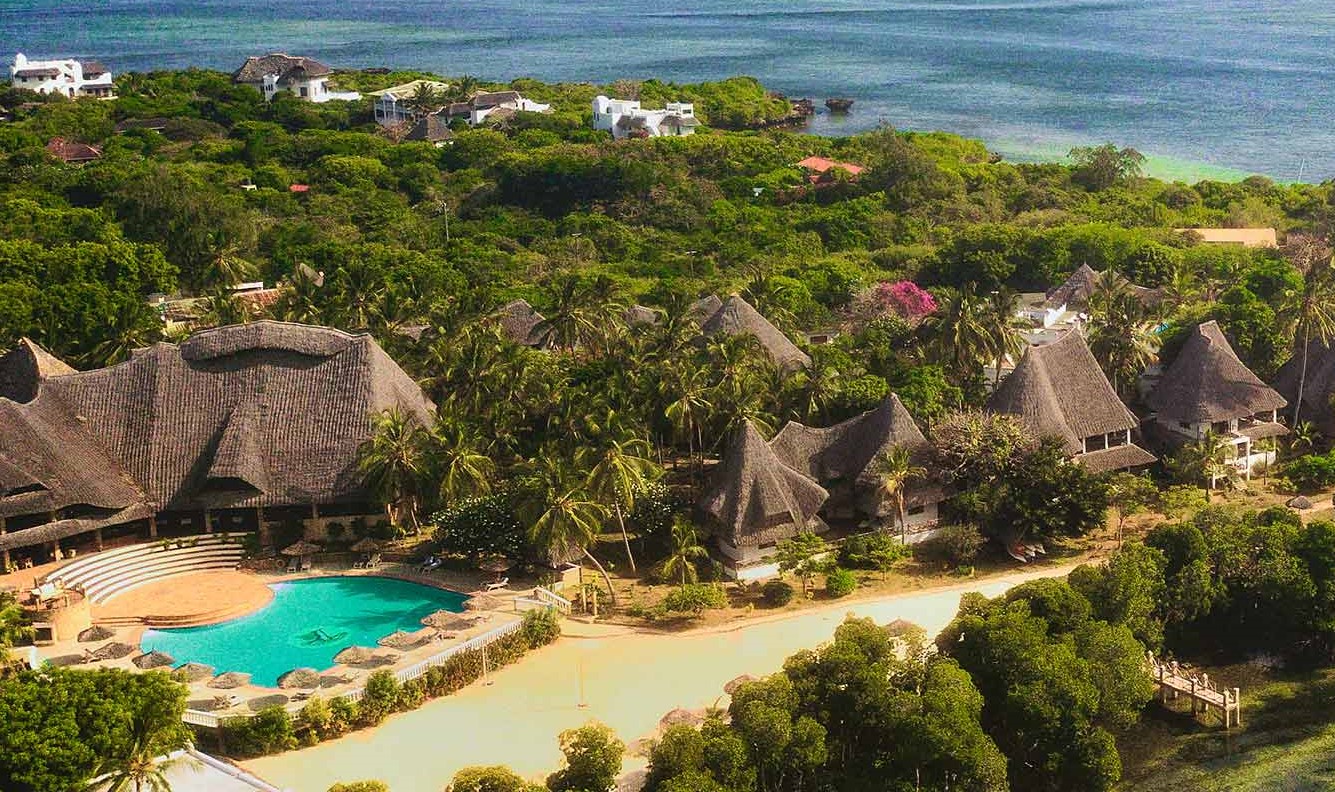
Dive Worldwide has recently introduced Kenya to its portfolio of dive destinations, making it a new must-visit for divers. The company has chosen Temple Point Resort, located in Watamu, a small town on Kenya’s Indian Ocean Coast. The resort embodies the spirit of Kenya, with thatched roof buildings and bright white interiors, complemented with local art. The Creek Deluxe rooms enjoy a creek view and sunset vistas, whilst Boutique Garden rooms offer peace nestled in lush greenery.
An abundance of activities such as golf, stand up paddleboarding and kite surfing await those looking for action; while those in search of rejuvenation may partake in a range of yoga classes, or indulge in the spa. Spend evenings dining poolside dining or lazing in hammocks suspended over the creek; there is no detail missed at Temple Point.
The waters surrounding Temple Point Resort are bustling with life, however, there is also an opportunity to explore on dry land. Tsavo National Park is close enough for a day safari, allowing guests to double up on the wildlife experiences Kenya has to offer, from elephants to whale sharks.
Suggested Dive Itinerary: Dive and Discover Kenya
Embark on an adventure to one of Africa’s finest marine parks, Watamu, the first of its kind in the continent. Created in 1968, Watamu offers excellent diving and snorkelling for those of all experience levels. Lively coral reefs and the surrounding waters are home to over 1,000 species of fish, devil rays, mantas, whale sharks, dolphins and turtles.
DEAL: Stay 12 nights for the price of 10 at Temple Point Resort
Price: Dive and Discover Kenya now costs £2295pp, saving £150 per person. Including international flights from the UK, 12 nights’ B&B (for the price of 10), transfers, 5 days, 10 dive pack, tanks and weights. Based on travel in September ONLY. https://www.diveworldwide.com/trip-ideas/dive-discover-kenya#details
For more information visit: diveworldwide.com or call 01962 302 087
-

 News3 months ago
News3 months agoHone your underwater photography skills with Alphamarine Photography at Red Sea Diving Safari in March
-

 News3 months ago
News3 months agoCapturing Critters in Lembeh Underwater Photography Workshop 2024: Event Roundup
-

 Marine Life & Conservation Blogs3 months ago
Marine Life & Conservation Blogs3 months agoCreature Feature: Swell Sharks
-

 Blogs2 months ago
Blogs2 months agoMurex Resorts: Passport to Paradise!
-

 Blogs2 months ago
Blogs2 months agoDiver Discovering Whale Skeletons Beneath Ice Judged World’s Best Underwater Photograph
-

 Gear Reviews3 weeks ago
Gear Reviews3 weeks agoGEAR REVIEW – Revolutionising Diving Comfort: The Sharkskin T2 Chillproof Suit
-

 Gear Reviews3 months ago
Gear Reviews3 months agoGear Review: Oceanic+ Dive Housing for iPhone
-

 Marine Life & Conservation2 months ago
Marine Life & Conservation2 months agoSave the Manatee Club launches brand new webcams at Silver Springs State Park, Florida

















